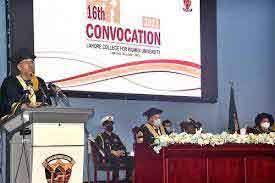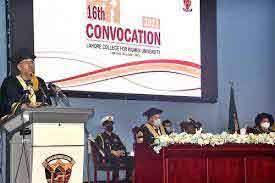SWABI: Despite the material hardships and persecution she faced for being a Hazara girl, Karima Batool managed to clinch a gold medal at Ghulam Ishaq Khan Institute of Engineering and Technology and now she is on her way to joining Harvard University.
Karima, a resident of Quetta’s Mari Abad neighbourhood, was raised by a working-class family who migrated from Afghanistan two generations ago. Quetta, however, was no different for them as they still lived under the shadow of fear. But fear did not deter her from turning her dreams into reality.
She started attending a school in her neighbourhood and her parents did everything to support her education despite having no formal education at all. Over the years, she managed to win awards for her work at the national and international levels.
“GIKI not only groomed me professionally but it also introduced me to a new and better version of myself,” Karima says while speaking about her time at the Ghulam Ishaq Khan Institute.
She recalls that though her initial year at the institute was testing, she managed to overcome the tribulations through sheer hard work and at one point students started coming to her for advice on good grades. Karima also became the president of the Women Engineering Society and she, alongside her team, breathed a new life into this organisation which was on the brink of collapse. “I participated in three international competitions on its platform and won a prominent position which proved very helpful in clinching the gold medal,” she says.
Her journey took great resilience. Youngest among six siblings, Karima says she did not like the “white and blue” uniform which she wore to an “Urdu medium” school in the neighbourhood and her schooling was dotted with incidents of discrimination based on her gender and ethnic identity.
In a conversation with Dawn, she dwells upon the ghettoisation of the Hazara community in Quetta. “We were confined to our homes” amid widespread targeted killings and bombings.
She says her cousin was killed in an explosion in front of her eyes when she was in her fifth grade; and the memory still haunts her. All this violence took a toll on my self-esteem as well, she says, recalling her struggles.
Karima credits her parents for providing her an enabling environment where she thrived and started to excel in academic and non-academic activities.
“In fact, my parents promoted my interests and always provided full moral and financial support in critical times throughout my endeavours despite financial hardships,” she says. She also expressed gratitude for her supportive siblings.
Shackles of patriarchy
But it took time to convince her parents, according to Karima.
“Despite securing the fifth position in the board examination, it took me another couple of years to break the shackles of patriarchy and to prove that a woman can live miles away from her family all by herself,” she recalls.
Karima says she overcame her fear and societal constraints and soon she was winning accolades in national and international science fairs. “In 10th grade, I represented Balochistan in a national science and engineering fair in Islamabad and won an excellent award for my multiplication game designed for school dropouts,” she tells Dawn.
“These fairs helped me expand my horizon as I was introduced, in the capacity of a young researcher and developer, to a new level of diversity and inclusive environment,” Karima reminisces. Her professional growth demanded such an environment.
Today, she is a proud Hazara who broke through the glass ceiling. “My parents are proud,” she tells Dawn. Karima says she wants to play her role in the uplift of the Hazara community and she is already counseling young students for three years. “I am giving something which I had yearned for when I was their age; this will motivate them to realise their dreams.”
At Harvard, she wishes to explore more of her interest and expose herself to the rich academic and professional world that is Ivy League. There are hits and misses, but every opportunity needs to be taken advantage of.
“I can say with confidence that I have made full use of everything offered to me in my student life, and today I walk with my head held high.”
Now Harvard is Karima’s oyster.
Source: Dawn






